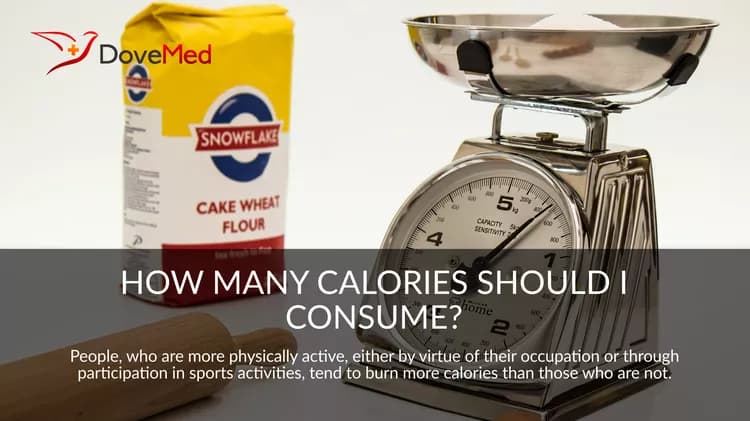A calorie is scientifically defined as the amount of heat required to raise the temperature of 1 liter of water by 1 degree Celsius. Basically, a calorie is a scientific measure of energy. Energy can be considered to be synonymous to calories.
Energy balance in the body refers to the balance of calories taken in through food and drink as compared to the amount of calories burned via physical activity. A certain number of calories are burned just by breathing and by digesting one’s food. This is referred to as basal metabolic rate (BMR). It accounts for 50%-70% of the calorie expenditure per day.
People, who are more physically active, either by virtue of their occupation or through participation in sports activities, tend to burn more calories than those who are not. The balance of calories consumed and calories burned does not have to be balanced every day. It is the balance of the calories consumed versus calories burned over time that makes a difference to one’s weight. A study published in the journal Cell in 2001 explains that obesity develops only if energy intake, in the form of food and drink, chronically exceeds total body expenditure. The components of energy expenditure are basal metabolism, physical activity, and adaptive thermogenesis.
The amount of calories one must consume depends on one’s level of activity.
- A moderately active person is defined as a working person who does not indulge in a great deal of exercise. Physical activity done by such a person may involve walking for 1.5-3 miles per day at a rate of 3-4 miles per hour, apart from the energy expended in day-to-day activities.
- A relatively inactive person refers to one who has a sedentary lifestyle. A sedentary lifestyle involves only light physical activity pertaining to everyday life.
- If a person is more than moderately active, he or she should monitor their intake of calories in order to prevent unwanted weight loss. A person with an active lifestyle has physical activity equivalent to walking over 3 miles per day at a rate of 3-4 miles per hour, apart from his or her day-to-day activities.
If one wants to determine the amount of calories to consume in order to gain or lose weight, one should visit a nutritionist. However, if one wants to maintain one’s current weight, one can make use of the following formulae:
- Moderately active male: Weight in pounds x 15 calories = Total calories to be consumed per day
- Moderately active female: Weight in pounds x 12 calories = Total calories to be consumed per day
- Relatively inactive male: Weight in pounds x 13 calories = Total calories to be consumed per day
- Relatively inactive female: Weight in pounds x 10 calories = Total calories to be consumed per day
Children and adolescents need more calories as they grow, whereas adults need fewer calories at an advanced age.
Maintaining the energy balance in daily life requires that one should be watchful about their intake of food. It has been observed that eating only 150 extra calories per day can cause a weight gain of 5 pounds in 6 months. At this rate, one gains 10 pounds in a year. According to an AHA (American Heart Association) Scientific Statement published in 2006 in the journal Circulation
- Caloric intake as well as physical activity should be balanced to achieve and maintain a healthy body weight.
- A diet with a lot of fruits and vegetables should be consumed.
- Whole-grain, high-fiber foods should be chosen.
- Oily fish should be consumed twice a week.
- Saturated fat intake should be limited to less than 7% of energy and trans fat to less than 1% of energy.
One should not attempt to eat less than 1200 calories per day since this slows down metabolism. Also, any additional calories eaten gets stored as fat. Hospitals and gyms follow the Mifflin-St Jeor equation to accurately measure daily calorie requirements, which takes into account one’s height and weight.
Hence, begin eating healthy today but watch out for those extra calories!
Related Articles
Test Your Knowledge
Asked by users
Related Centers
Related Specialties
Related Physicians
Related Procedures
Related Resources
Join DoveHubs
and connect with fellow professionals


0 Comments
Please log in to post a comment.